OLS is happy to announce our collaboration with multiple international organisations and communities to deliver the Open Seeds OLS-8 programme
OLS is joining forces with the Bioinformatics Hub of Kenya initiative (BHKi), the South African Center for Digital Language Resources (SADiLaR) via the ESCALATOR programme, VU Amsterdam and MetaDocencia, to bring together the newest Open Seeds cohort, OLS-8. Our goal is to connect community members from our respective regions in the international open science network, as well as strengthen their role as ambassadors for open science through local activities.
Leads and members from the partnering organisations and communities have worked with OLS since the very beginning. As OLS fellows, they have taken different roles in Open Seeds as well as provided the OLS team with several opportunities to learn from their work.
Who we are:
-
Mike Landi Kofia and Laurah Nyasita (representing BHKi), and Anelda Van der Walt (representing ESCALATOR by SADILAR) are piloting an Africa-OLS chapter under which they will upskill undergraduate, postgraduate, early- and mid-career researchers in open science as well as create local opportunities in Kenya and South Africa.
-
Lena Karvovskaya is leading an Open Science Champions programme in VU Amsterdam for researchers and support staff, successful candidates for which will undergo the Open Seeds programme and engage through open communication efforts locally in Amsterdam.
-
Laura Acion and Nicolás Palopoli, co-directors of MetaDocencia, are engaging their team to learn the operational aspects of Open Seeds to plan and deliver cohort-based training for NASA-TOPS, as well as share their learnings with the broader community.
Open Seeds Programme Coordinator, Paz Bernaldo, the OLS Directors and team members will contribute to ensure that OLS-8 is delivered as planned. Likewise, OLS’s existing collaborations, with TU Delft, The Turing Way, ELIXIR and EOSC-Life, have been instrumental and will continue to be so in OLS-8. As an example, the Faculty of Applied Sciences at TU Delft, thanks to its Data Steward, Esther Plomp, has collaborated with Open Seeds since OLS-4 (2021), ensuring that participating PhD candidates are eligible for 5 Discipline-related credits for their Doctoral Education Programme.
Below we share the goals and visions behind these new partnerships and explain what they mean for the OLS-8 cohort.
Africa-OLS
BHKi
Introducing open science to learners early in their education, deepening their understanding and retaining them in science through international mentorship - Mike Landi and Laurah Nyasita, Co-leads of BHKi team
At its core, BHKi is a community of bioinformatics enthusiasts spanning from novices to seasoned experts. BHKi’s overarching goal is to be a dynamic, well-coordinated, and enthusiastic hub that plays a central role in the advancement of bioinformatics. Through various activities such as seminars, workshops and trainings, BHKi seeks to raise awareness, forge meaningful collaborations, and enhance bioinformatics capacity. Since 2022, BHKi has been sensitising bioinformatics and open science to early career researchers including undergraduate and postgraduate students through outreach activities. The turnouts at these gatherings have been overwhelming, with enthusiastic students from various departments eager to learn and engage. The networking sessions (which are a part of the outreach program) provided a platform for students to interact with mentors, share experiences, and seek guidance on their academic and career paths. Through these interactions, we have recognized the crucial need for mentorship and career guidance for undergraduate students.
By partnering with OLS’ Open Seeds, we hope to continue this effort by providing the much needed mentorship that early career scientists need. We have noticed a curiosity for open science and bioinformatics among local upcoming researchers but also a general lack of resources, infrastructure and clear guidance on how to satisfy it. From this we aim to mentor projects that are bioinformatics-based and open science oriented in the OLS-8 cohort as a pilot for future partnerships with Open Seeds. The special addition for Kenyan participants will involve local in-person meetups with local OLS mentees and mentors. Additionally, OLS-8 will culminate in an open science symposium where they will get to interact with other members from BHKi, share their learnings and further develop their ideas.
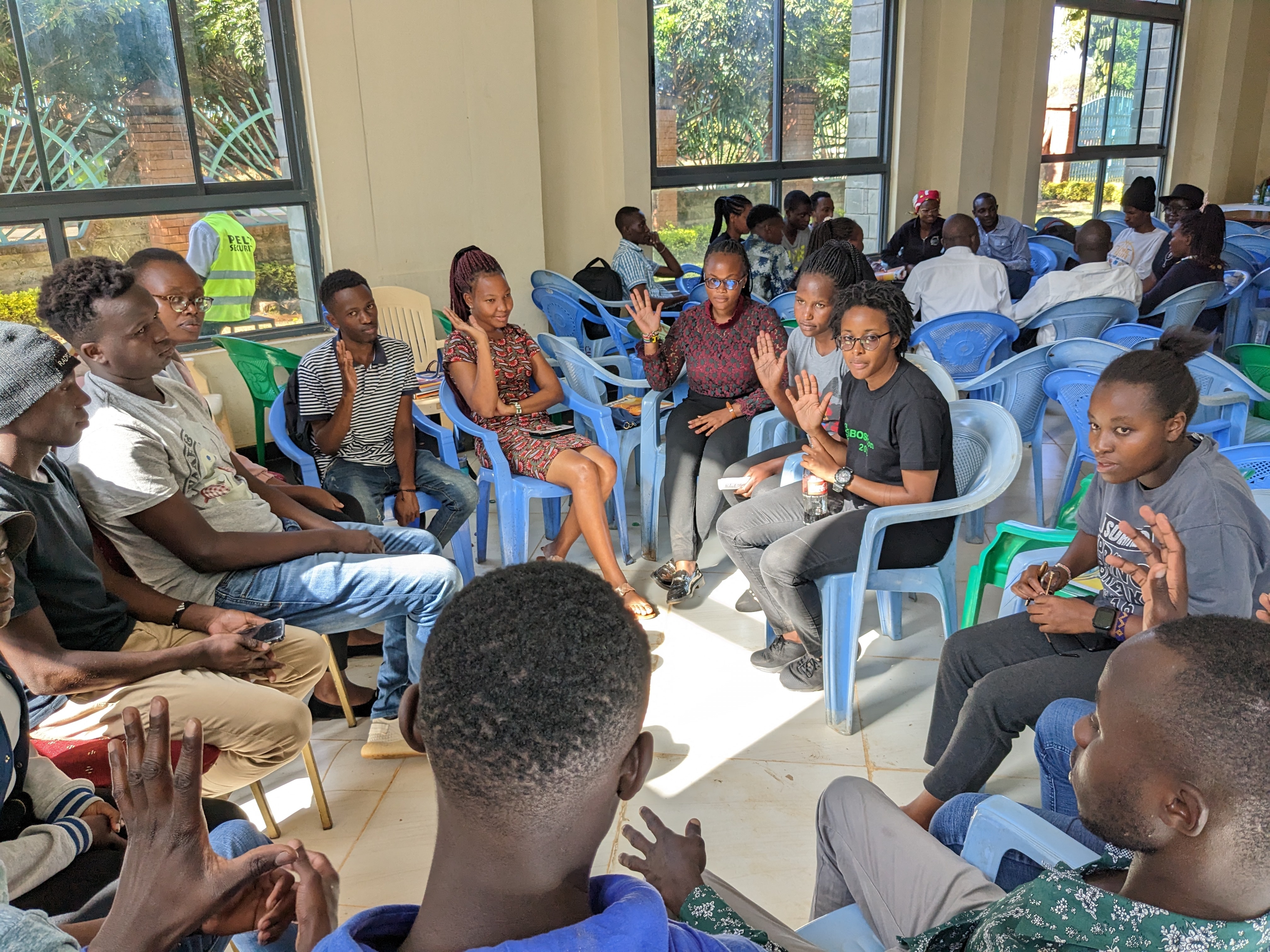 BHKi members photographed during an outreach at Chuka University in Tharaka Nithi, Kenya.
BHKi members photographed during an outreach at Chuka University in Tharaka Nithi, Kenya.
ESCALATOR by SADiLaR coordinated by Talarify
Bringing open science practices to the humanities and social sciences in South Africa through mentorship and embedment in a welcoming community of practice - Anelda Van der Walt, Director of Talarify
ESCALATOR aims to support the development of an inclusive and active community of practice in Digital Humanities and Computational Social Science in South Africa. The programme is hosted by SADiLaR, one of the South African Research Infrastructure Roadmap entities that receives its funding from the Department of Science and Innovation. ESCALATOR is an ambitious initiative built on three pillars:
- DH-IGNITE, an in-person or hybrid two-day community event run in five different regions across the country;
- the [Digital Champions Initiative] (https://escalator.sadilar.org/champions/overview/), for people with different levels of digital and computational experience;
- the Stakeholder Map, a database and interactive visualisation of people and resources.
In 2021, before kicking off the Digital Champions Initiative, the ESCALATOR team partnered with a number of leaders from existing mentorship programmes to run a Mentorship Indaba with the aim of building on the lessons learnt through the development and implementation of these programmes. One of these programmes was OLS. This resulted in an article titled “Ten simple rules for establishing a mentorship programme”.
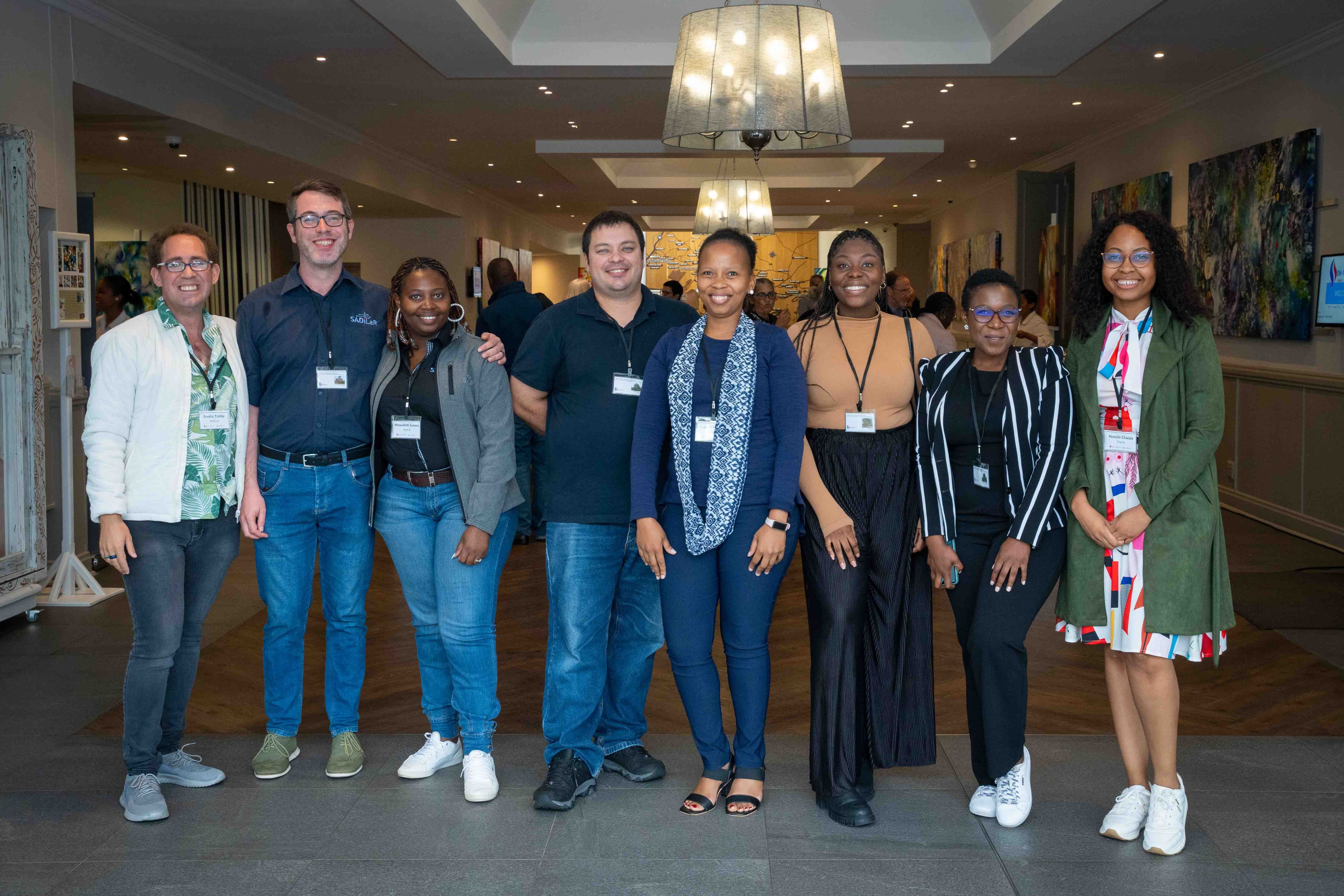 The organising team for DH-IGNITE Western Cape 2023, a regional community and capacity building event for Digital Humanities in South Africa and part of the ESCALATOR programme (https://dh-ignite.org)
The organising team for DH-IGNITE Western Cape 2023, a regional community and capacity building event for Digital Humanities in South Africa and part of the ESCALATOR programme (https://dh-ignite.org)
In South Africa, as in many other regions, open science is still a very theoretical concept that researchers and students often find intimidating and even threatening. By partnering with OLS, we hope to introduce some of our community members to open science in practice. We are thrilled for the opportunity to not only teach people about open science, but also to help embed them in a vibrant community where open science is much more than just implementing arbitrary rules to make research more [FAIR](https://www.go-fair.org/fair-principles/). Open Seeds offers participants an opportunity to connect to peers across the globe, learn how to collaborate in interdisciplinary communities, and experience structured mentorship. By continuing our collaboration with Open Seeds and others in this programme, we also continue to learn lessons about the development and implementation of successful mentorship programmes which will be adopted as ESCALATOR continues to roll out opportunities for the community.
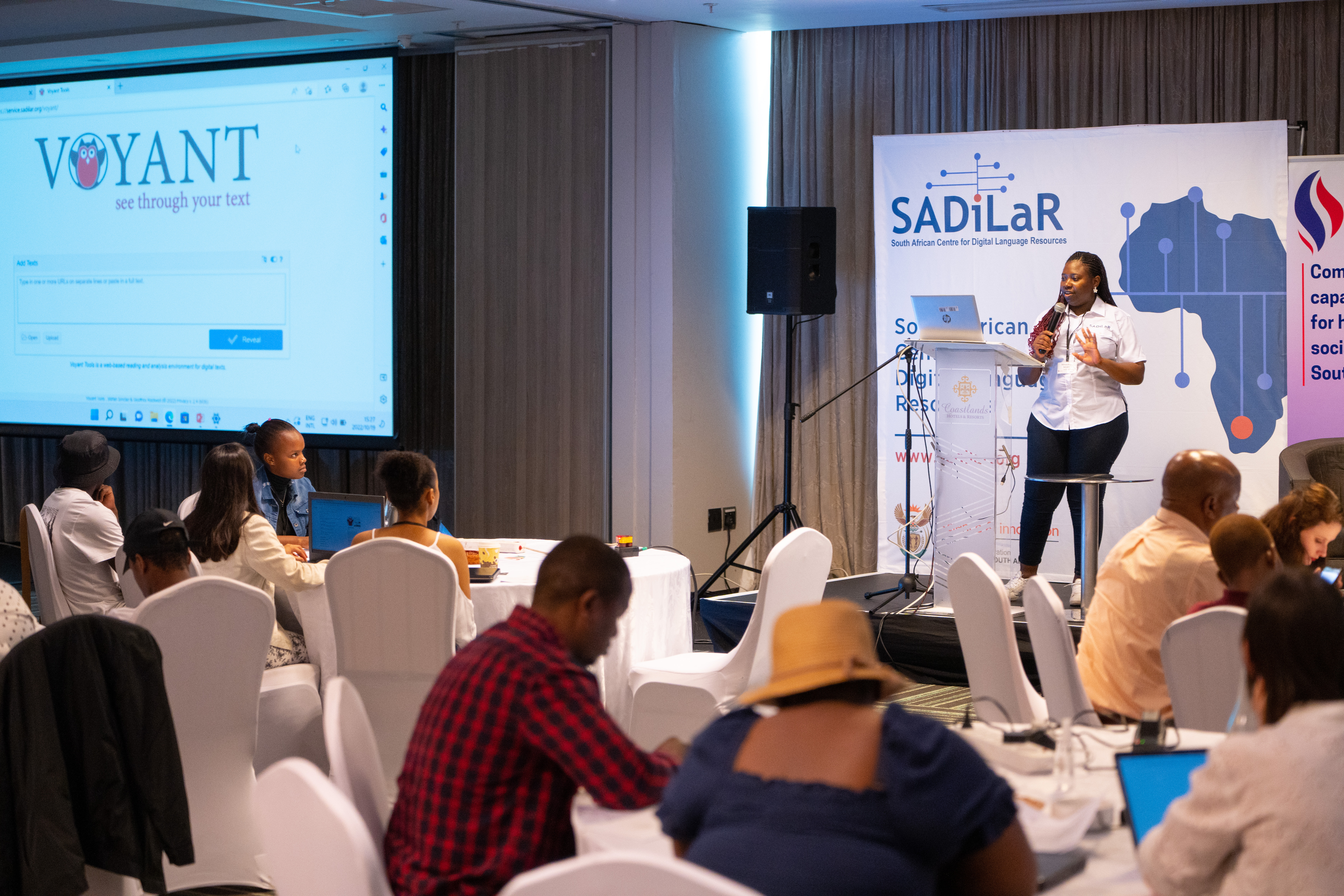 Mmasibidi Setaka, one of the OLS-8 participants, introducing people to Voyant, an open-source web-based application for text analysis, at DH-IGNITE KwaZulu Natal 2022.
Mmasibidi Setaka, one of the OLS-8 participants, introducing people to Voyant, an open-source web-based application for text analysis, at DH-IGNITE KwaZulu Natal 2022.
VU Amsterdam
Incentivising members in research infrastructure roles to become involved in the international open science movement - Lena Karvovskaya, Community Manager RDM and Open Science
The VU Amsterdam group will have a few in person events open to the broader VU community to attend. These events will probably be special editions of the VU Data Conversations. During the meetings, the OLS-8 participants will give lightning talks about their work. This will also help to get research infrastructure colleagues more involved because they typically attend such meetings. We want to show researchers what possible OLS projects can look like for different disciplines. At the same time, we want to highlight that there is a lot of important work happening that is not always recognized by the academic system and that researchers can benefit from looking at what they do from other perspectives.
We will support these projects in order to champion and exemplify open science in their departments and faculties. Through local events and newsletters, we will highlight their work and invite more members to engage with their work.
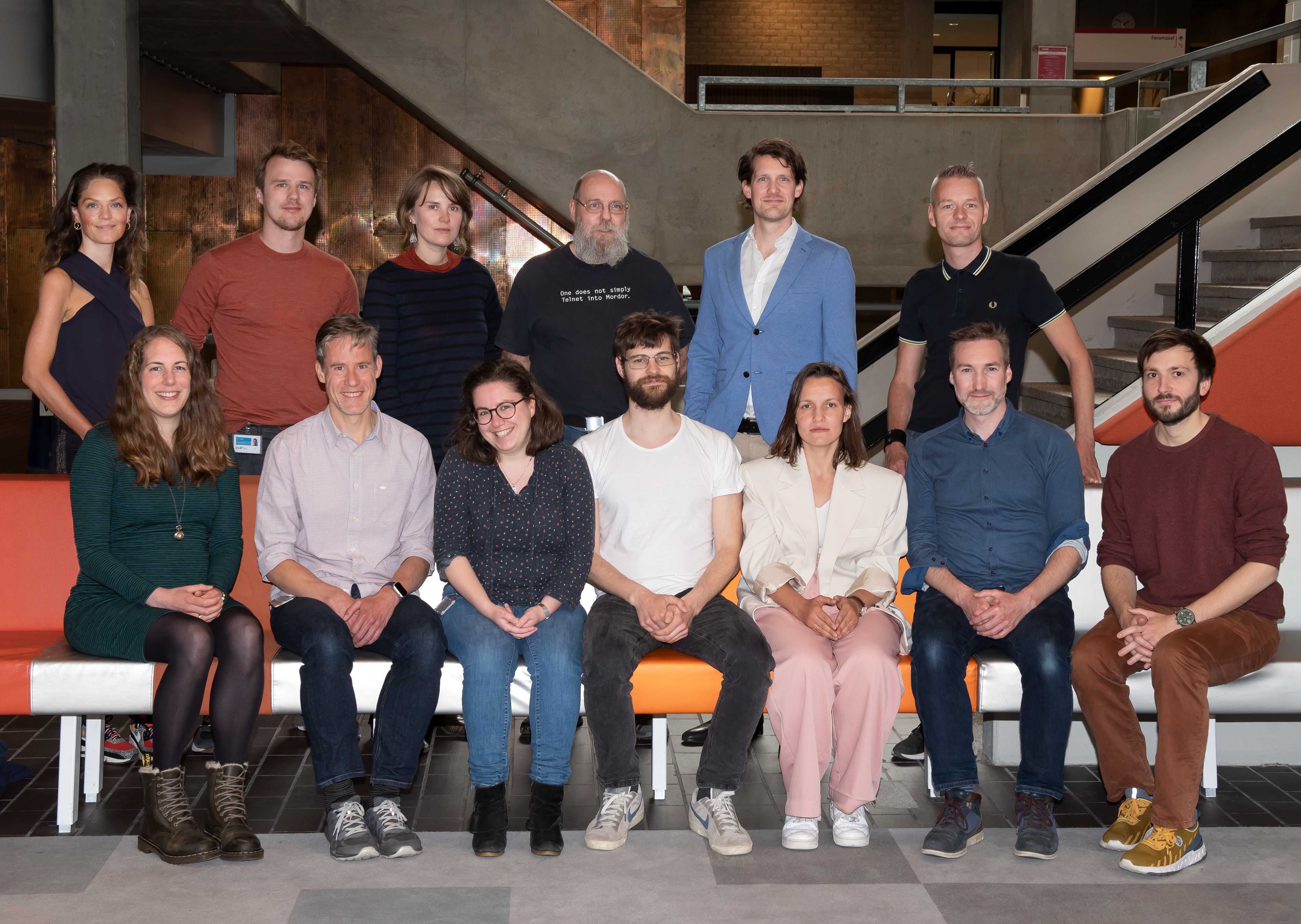 Lena and the VU Amsterdam team
Lena and the VU Amsterdam team
MetaDocencia
Building capacity to deliver long-term cohort-based training for Spanish-speaking researchers and technicians in Latin America - Laura Acion and Nicolás Palopoli, MetaDocencia Executive Co-Directors.
MetaDocencia launches its work in two of the three NASA Transform to Open Science (TOPS) mission grants by joining OLS-8 at all levels. That is, the whole MetaDocencia team, depending on where each person is, will be participating in OLS-8 as mentees, facilitators, and mentors. This participation will allow MetaDocencia and OLS teams to start collaborating in view of the two NASA projects we share. MetaDocencia will also learn OLS’ business model from the inside so we can contextualise it to our region. At the same time, participating in OLS-8 will strengthen South-South collaborations in a way our community has yet to experience. Throughout OLS-8, MetaDocencia will be working in two mentored groups. One will lead MetaDocencia’s yearly governance and policies review. The other one will build the structure and infrastructure for offering virtual cohorts to Spanish-speaking researchers and technicians in Latin America. These learnings will be shared with the broader community openly, allowing others to also learn from our experience.
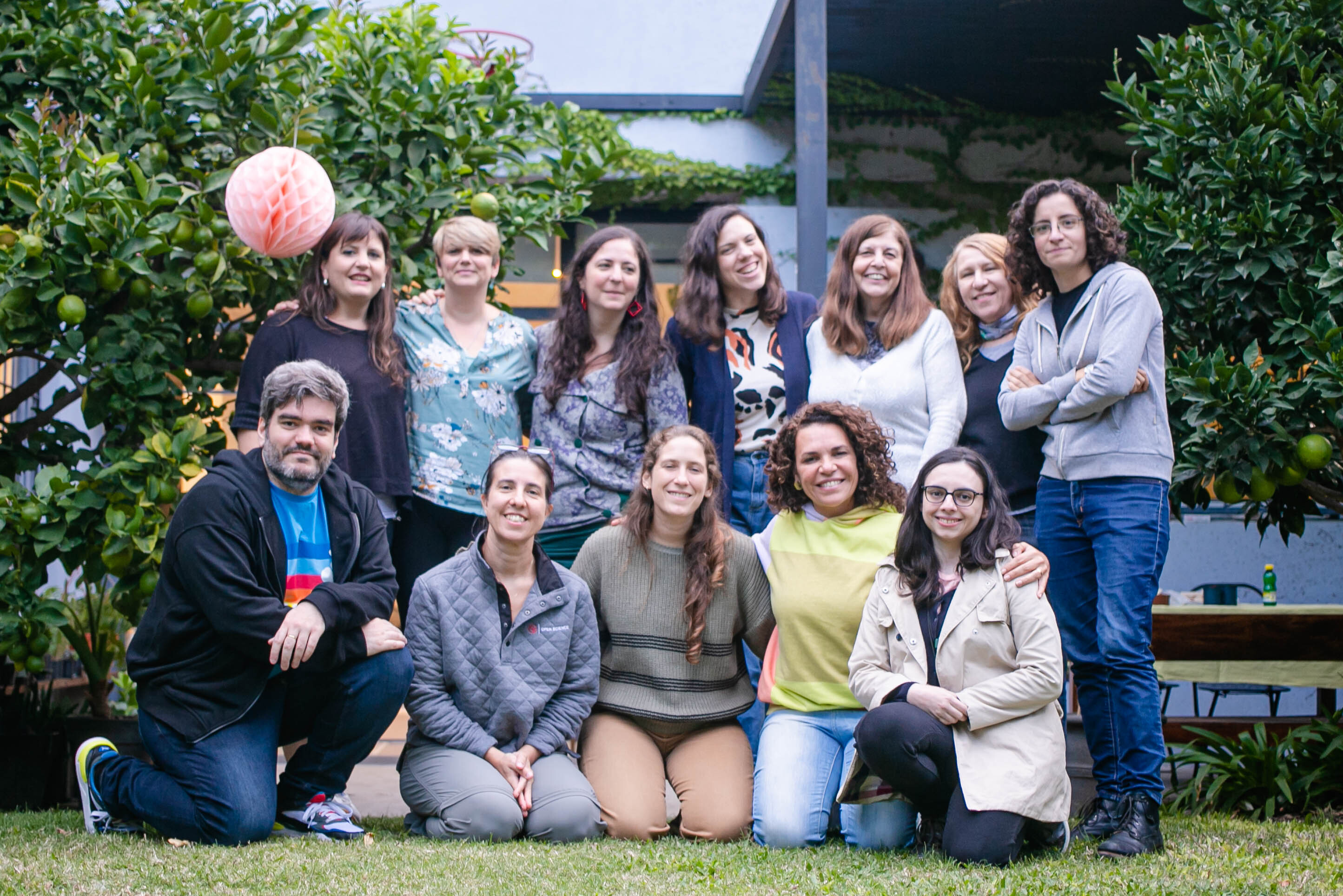 Part of the MetaDocencia team and external collaborators at their first in-person retreat, held in Buenos Aires in 2023.
Part of the MetaDocencia team and external collaborators at their first in-person retreat, held in Buenos Aires in 2023.
Making the most of this diverse cohort!
Through this collaborative effort, we also want to reimagine some aspects of Open Seeds, so that better opportunities are made available for everyone. We would like all participants to benefit from the diversity of expertise, perspectives and ideas members of this cohort and team will bring, and also engage with one another beyond their local contexts. In view of this goal, we together thought of a couple of activities to implement in OLS-8:
-
Each partnering organisation will host themed sessions, in which a wide range of topics of shared interest will be discussed (from how to access academic publications to how to use alt-text or structure a CV). Topics will be suggested based on an informal survey with cohort members.
-
We will host randomised peer-networking calls (3 mentees/project leads) each month. These calls will be a good place to meet informally, talk about their work (projects, struggles, successes, questions, etc.) or discuss assignments or presentations from the cohort calls. These calls will replace the OLS-7 Cafeterías that weren’t well attended. We hope these smaller self-organised meetings will work better for most people.
Although not mandatory for graduating, we will encourage our cohort participants to engage in the community through various activities and channels. We believe this helps us all broaden our networks, increase our chances of collaboration and stay aware of the huge diversity of perspectives in science practise.
OLS-8 coming soon!
We are excited to welcome our new cohort members together with our partnering organisations and kick off the Open Seeds OLS-8 in September.
Do you have feedback for us? Please email team@we-are-ols.org, or connect with Paz on Slack if you are an OLS member.
Funding acknowledgement: This cohort is funded by the Wellcome Trust Open Research Fund and the CZI grant awarded to OLS in 2022. NASA Grants 80NSSC23K0854 and 80NSSC23K0857 fund MetaDocencia’s work in this project. SADiLaR is a national center funded by the South African Department of Science and Innovation as part of the South African Research Infrastructure Roadmap project.